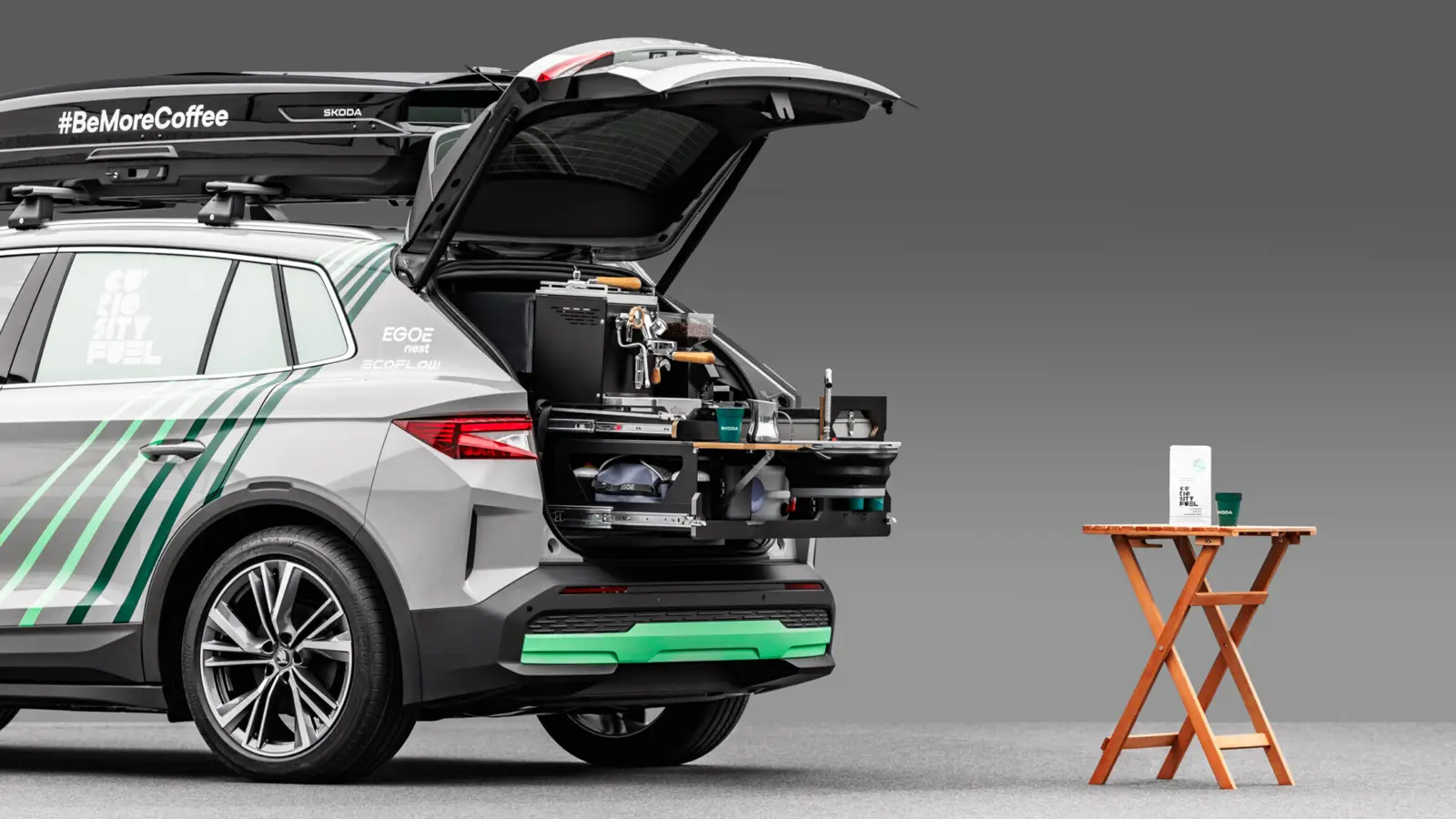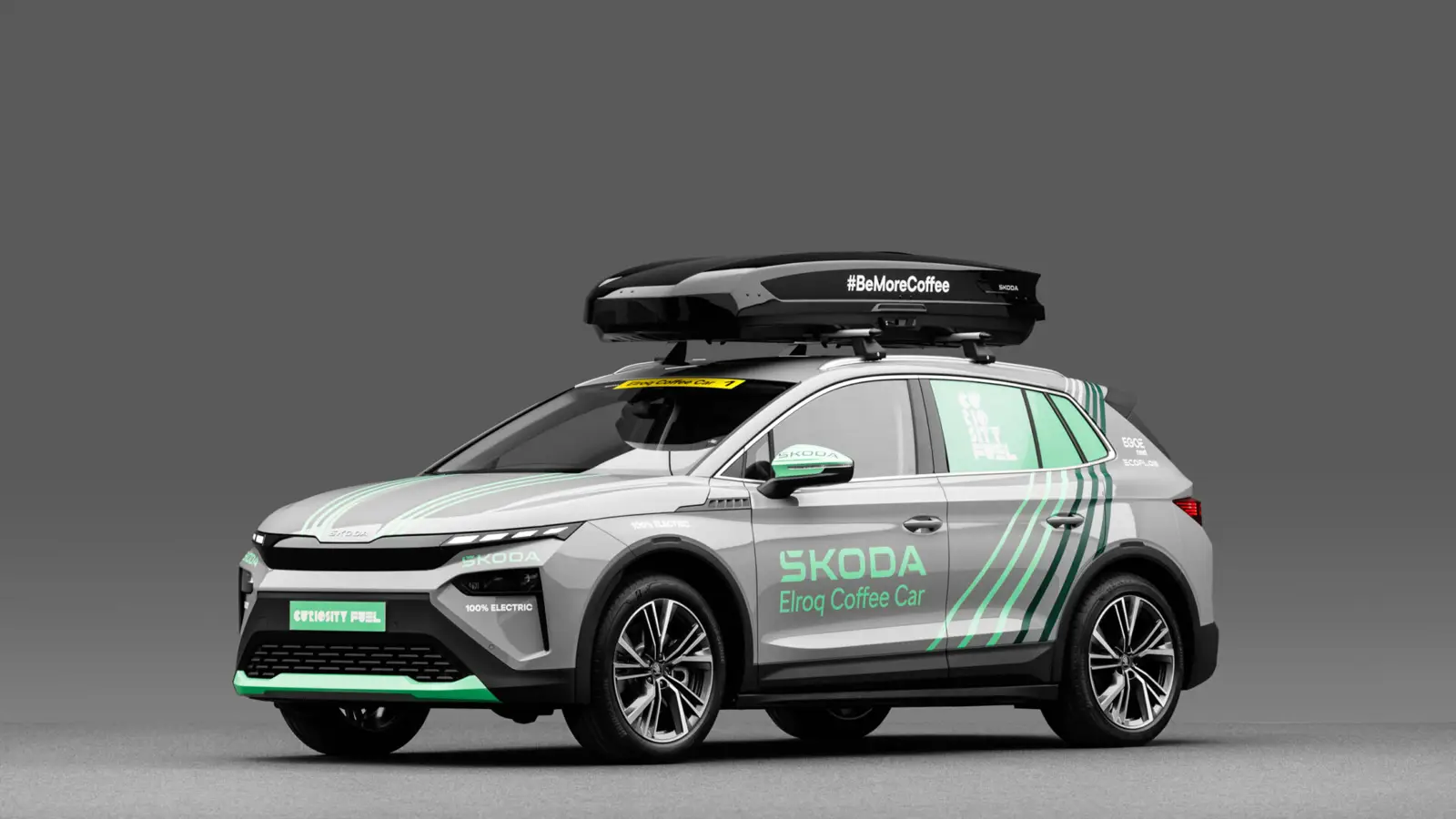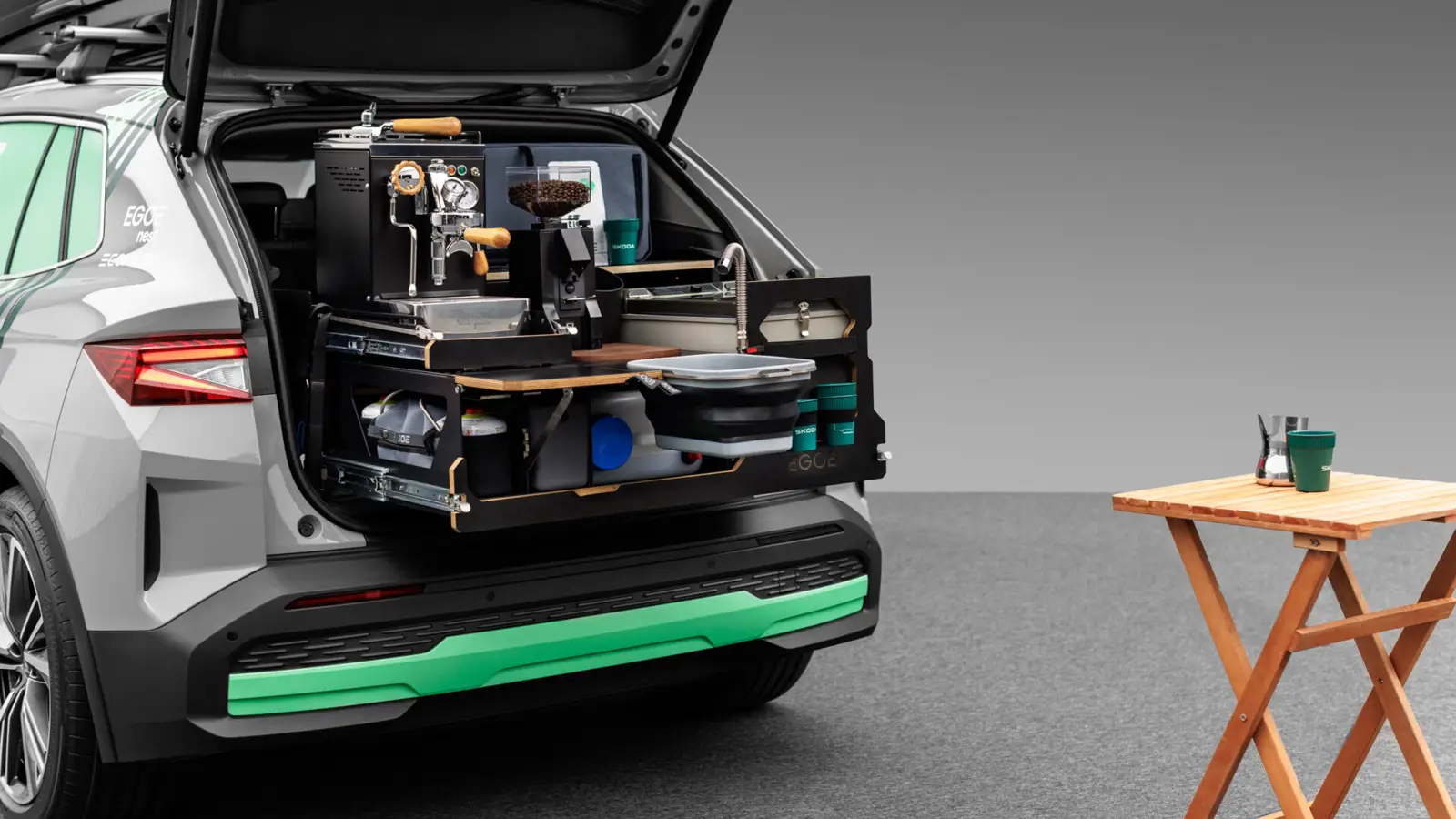Curiosity Fuel coffee: Skoda links mobility and sustainability

Skoda extends Curiosity Fuel coffee project with Rainforest Alliance beans from India and Tanzania, roasted locally in Czech Republic, highlighting eco responsibility
Skoda’s electric vehicles have once again taken on a new role. This time, the Elroq and Enyaq models were transformed into mobile cafés known as the Skoda Coffee Cars. Far from being a simple gimmick, the idea proved fully functional: the cars’ high-capacity batteries powered professional coffee equipment, allowing them to serve free coffee at some of Europe’s biggest events.
The first Coffee Car debuted during the Elroq press drives in Mallorca, soon followed by a converted Enyaq equipped with identical gear. Inside, the cars carry a coffee machine, grinder, refrigerators, an ice maker and even a stove. Power is drawn directly from the 82 kWh battery, while additional capacity comes from roof-mounted solar panels. Thanks to this setup, a three-member crew can be ready to serve in just ten minutes after stopping.

The project quickly expanded beyond its initial showcase. At Milan Design Week, the Coffee Car served visitors for an entire week and still retained 20% of its charge. During the Tour de France, the vehicles became highlights of the caravan: fans received more than 15,000 cups of coffee there alone. Czech influencer Michal Kamermeier, better known as Majk na cestach, joined the initiative and drew further attention. His presence amplified the response—people noticed not only the striking car graphics but also the chance to interact with the traveler himself.
In 2025, the Coffee Cars also appeared at the Salon Rétromobile in Paris, the Metronome Festival in Prague and the Mountain Bike World Championships in Switzerland. According to the company, the two cars have already ground more than 500 kilograms of beans this year, with the figure continuing to rise.

Sustainability remains at the heart of the project. Skoda serves its own Curiosity Fuel coffee, certified by the Rainforest Alliance. The beans come from family farms in India and Tanzania and are roasted at the family-run Jablum roastery in Bezděčín, Czech Republic. Around 25 tonnes of this coffee are consumed annually at Skoda’s Czech plants. Even the husks are reused—they are processed for tanning leather used in the interiors of Kodiaq and Octavia models. In this way, each cup of coffee becomes part of a broader cycle linking electric mobility, coffee culture and ecological responsibility.
Skoda has not disclosed whether additional Coffee Cars will be created, but one thing is clear: the unusual format has secured its place in the company’s marketing strategy. From the Tour de France to international exhibitions, these vehicles act as eye-catching ambassadors for a vision of a sustainable, zero-emission future.
Mark Havelin
2025, Sep 30 15:17


